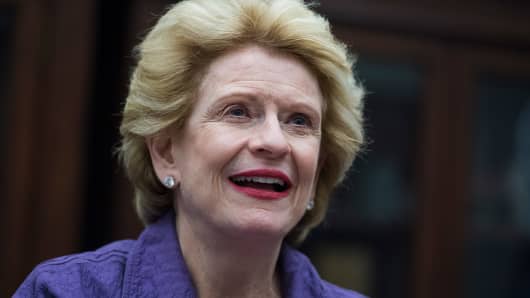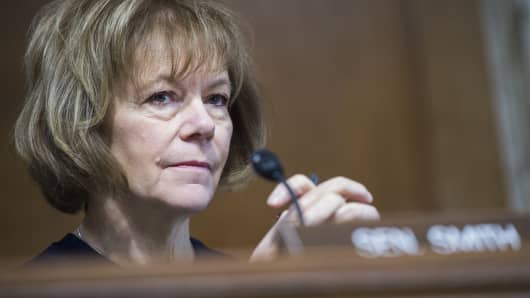Senate Democrats defending their seats this year in three key Midwestern states have double-digit leads in new polls released Thursday to go along with a massive fundraising edge.
Incumbents seeking re-election in Wisconsin, Michigan and Minnesota hold comfortable edges with a little more than three months before November's midterms, the NBC News/Marist polls found. The numbers back up the perception that the races — two of which will take place in states President Donald Trump narrowly won in 2016 — may be out of reach for the GOP as it tries to keep or expand its Senate majority on a favorable electoral map.
If Republicans cannot flip any of those states, it increases the importance of beating Democrats in redder states such as Missouri and Indiana or defending seats in Nevada, Arizona and Tennessee. In listing the states that will determine Senate control this year, Senate Majority Leader Mitch McConnell notably left out Wisconsin and Michigan, as well as Pennsylvania and Ohio, two states Trump won in 2016 where Democrats face re-election.
- Wisconsin: Sen. Tammy Baldwin holds a big advantage over both of her potential Republican challengers in a state Trump carried by less than a percentage point, according to an NBC/Marist poll. Baldwin garners 54 percent of support among registered voters in a potential matchup with Kevin Nicholson, versus 39 percent for the GOP Marine veteran. In a possible race against conservative activist and nurse Leah Vukmir, 55 percent say they prefer Baldwin, while 38 percent back Vukmir, the poll says. The state's primary will take place Aug. 14.






